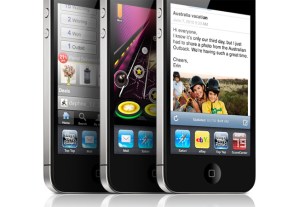
As Apple gets ready to roll out its own iAd mobile advertising platform for the iPhone and the iPad, is has begun to clarify the terms under which other mobile advertising platforms can run in-application ads on those devices. New terms outlined this week at WWDC do indeed permit third-party ad networks to place in-application advertisements in iPhone and iPad applications…however, Apple’s language limits the collection of user data for analytical purposes, and restricts utilization of user data to “independent” advertising service providers. The word “independent” is important there, because it would seem to exclude services like AdMob, which is owned by Google and, thus, no longer independent. The language would also seem to bar utilization of user data to serve ads from firms that are subsidiaries of other mobile technologies…say, companies owned by the likes of Microsoft, Nokia, RIM, Samsung, or (debatably) Intel.
Section 3.3.9 of Apple’s iPhone developer agreement currently states “an advertising service provider owned by or affiliated with a developer or distributor of mobile devices, mobile operating systems or development environments other than Apple would not qualify as independent.”
Apple does have a loophole for third-party analytics services developers could use for collection and analysis of third party, user, or device data from iPhone users: developers just have to get Apple’s prior written consent.
AdMob founder Omar Hamoui has responded directly to Apple’s revised license terms: “Let’s be clear. This change is not in the best interests of users or developers. In the history of technology and innovation, it’s clear that competition delivers the best outcome. Artificial barriers to competition hurt users and developers and, in the long run, stall technological progress.”
Apple and Google have been sparring over mobile advertising: Apple was originally looking to acquire AdMob for its own mobile advertising efforts, but Google snatched the company out from underneath them in November 2009 for $750 million. (Apple instead bought Quattro Wireless in January.) It took the FTC six months to approve the acquisition, and one of the primary factors in the regulatory agency’s decision to let the deal go forward was Apple’s announced iAd platform.
The Financial Times is reporting (subscription required) that Apple may face federal scrutiny for its new restrictions on mobile ads.

